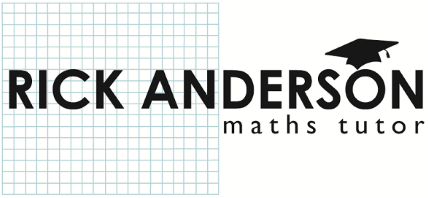Lessons cover the Year 10-11 GCSE individual options of Triple Science Chemistry, Physics and Biology and also Double Combined Science. Plus the broad preliminary 3-science introduction in Years 7-9. I also coach at Higher Level – Cambridge Natural Science entry exam, Physics Oxford PAT exam, and most aspects of Science A Level. The lessons cover Powerpoint theory presentations, past paper questions, and also videos of experiments (and even a real one in my study!) ; and also use the interactive quizzes I’ve created and published namely Maths for GCSE Science 400 questions, Science Environment 100 questions and Biology A Level 300 Maths questions
Chemistry.
The Edexcel and AQA courses differ a little but both are catered for. In each 1 hour lesson we will run through on-screen a summary of the key points from 3 or 4 individual topics, for instance atomic structure, electronic shells and periodic table. Then I will describe solutions to exam-style questions, revealing step by step on screen the methods to be followed to reach the right answer. For example the steps to fill up inner electronic shells before determining the all-important outer shell numbers.
Homewwork will be set in two ways; for questions relevant to the topics of the week, both copies of past papers problems embelished wiith my hints, and electronic web questions for instance from BBC bitesize.
The teaching will be focused more on “how to do problems” – particularly real GCSE or GCSE style questions – rather than memorising facts. Important, but the routine school lessons are fine for that discipline. I will attempt to include specific examples of “every type of question you may come across”, and “what the examiners are looking for” though nothing can be completely gangrened of course.
For AQA the lessons will be split into the following groups
:Unit 1A Products from Rocks
Unit 1B Oils, Earth, Atmosphere
Unit 2A Bonding and Calculations
Unit 2B Reactiosn Ratios Salts and Electrolysis
Units 3A Elements Water and Organic Chemistry
Units3B Titrations, Energy and Chemicals Tests
How Science Works
For Edexcel the lessons will be split into the following groups
Section 1 Principles of Chemistry
Section 2 Chemistry of the ElementsSection 3 Organic Chemistry
Section 4 Physical Chemistry
Section 5 Chemistry in Industry
Describing Experiments
Some specific A-Level topics can be covered such as Mass Spectrometry and Infra Red spectra
Physics
A large number of the physics GCSE exam questions are numerical problems. Even though formulae are often provided, my belief is that pupils should memorise all formulae anyway to increases understanding and applcation. So the physics tutroring will initially focus upon that aspect. In some cases there is a direct cross over from Maths, such as the formula triangle of speed, time and distance, in other cases purely for physics such as the triangle for voltage, current and resistance.
For each individual formula we will revise definition, the units of measure, an example of the caclulation, and reveal on-screen step by step the methods for each type of exam question related to that formula. We will also look at the background behind the formulae, so for wave velocity = frequency x wavellength and refractive index = sin (angle incidence) / sin (angle of refraction) we wil look at the types of wave ((transverse and longitudinal) and the electromagnetic spectrum.
Description of experiments is especially important in physics not just in class but in some exam questions too. For that reasons the tuition will also cover the expiremental disciplines of planning, equipment, gathering data, plotting graphs and drawing conclusions. For instance the disnction between depemdent and independent variable will be clearly explained.
In some cases sample questions will be created around familiar topics like soccer. So “the physics” of soccer is explained in terms of forces, momemtum, gravity, potential energy and kinetic energy in a way that could very easily appear in an exam.
Homework will be set both through copies of relevant real or sample past papers, and electronic web sites such as BBC Biesize.
The AQA syallabus will be covered:
1, Forces and Effects
2. Waves
3. Heating Processes
4. Electricity
5. Motors, Generators, transformers
6. Nuclear Physics
7. Space
Experiments – graphs, data, evaluation
The Edexcel syllabus will be covered
1. Forecs and Motion
2. Electricity
3. Waves
4. Energy
5. Solids, liquids, gases
6. Magnetism, Electromagntism
7. Radioactivity and particles
Experiments – graphs, data, evaluation
Biology
The topics to be covered will be in AQA and Edexcel
Nature and Variety of Living Organisms e.g. plants and animals
Structure and Functions in Living Organisms e.g transport, gas exchange, circulation
Reproduction and inheritance e.g. fertlisation, alleles, mitosis. chromosomes
Ecology and the Environment e.g food chains, carbon cycle, global warming, pollution
Use of Biological Resources e.g food production, genetic modification
Past paper homework will be set and recommended answers supplied. This is especially important in Biology as the questions often appear at first sight to be “off syllabus” – in fact they are real world cases studies of topics covered in class. So coaching will be given in constricting answers where not just the facts are required, explanation, analysis and interpretation too.
